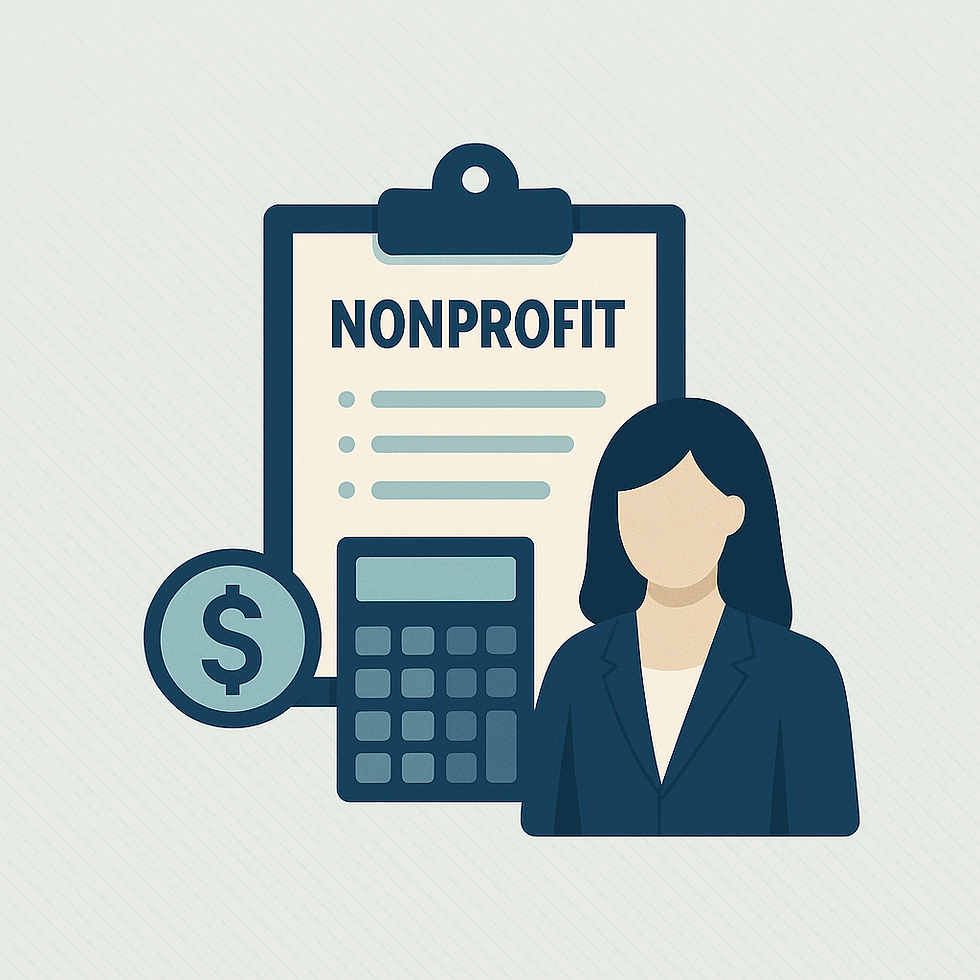Why Understanding Nonprofits Requires an Accountant Who Speaks Their Language
- nexustaxandbusines
- Jul 6, 2025
- 2 min read
Why Chambers Should Choose Accountants Who Specialize in Nonprofit Accounting
Not all nonprofits are created equal—and neither are accountants.
If you're running a Chamber of Commerce, you're balancing economic development, advocacy, networking, and member engagement. And while Chambers are nonprofit organizations, they operate under a 501(c)(6) designation—not the more common 501(c)(3) status. That distinction matters—and it’s why hiring an accountant who specializes in nonprofit andChamber-specific accounting is essential.
1. Chambers Aren’t Traditional Businesses—Or Traditional Nonprofits
Chambers occupy a unique space: you're mission-driven, but not donation-driven. You may generate revenue from memberships, events, sponsorships, or government contracts—but you're not operating to maximize profits. This creates complexities around:
Revenue classification
Cost allocations
Sales tax exposure
Unrelated business income (UBI)
A general business accountant might miss these nuances. A nonprofit specialist knows how to keep you compliant andstrategic.
2. 501(c)(6) Comes With Unique IRS Expectations
Unlike 501(c)(3)s, Chambers don’t rely heavily on charitable donations, and therefore don't deal as much with restricted funds (unless they operate a separate foundation). However, they do face their own IRS scrutiny—particularly around:
Lobbying activities
Political endorsements
Private benefit and inurement issues
Your accountant needs to understand how to track and report these activities correctly on Form 990 or 990-T, to protect your exempt status.
3. Foundations Add Another Layer
Many Chambers establish separate 501(c)(3) foundations to fund scholarships, workforce development programs, or community initiatives. These entities often do have restricted funds and grant reporting requirements.
An accountant who understands both sides of the house—the Chamber and its foundation—can:
Ensure proper separation of finances
Prepare consolidated (or separate) financials
Help you meet donor expectations and IRS requirements
4. Stakeholder Trust Depends on Financial Clarity
Your board, members, and local partners expect clean, accurate reporting. An experienced nonprofit accountant can deliver:
Board-ready financial dashboards
Member-facing budget summaries
Year-end audit prep with confidence
When your numbers are clear, your leadership becomes more effective.
5. One Size Doesn’t Fit All
Hiring an accountant because “they’re great with small businesses” might work—until it doesn’t. Nonprofit accounting has its own language and standards. If your accountant isn’t fluent in that world, you could be setting yourself up for errors, missed opportunities, or even IRS issues.
Final Thought
Chambers of Commerce play a vital role in local economies. To stay focused on your mission, you need an accounting partner who understands yours—not just someone who knows QuickBooks.
Make sure your accountant brings not just experience, but the right kind of experience.





Comments